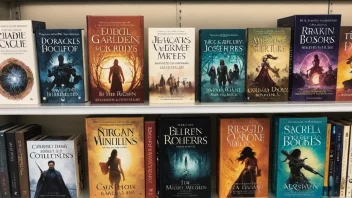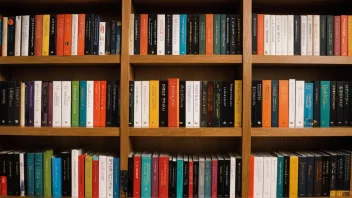In today's digital age, social media plays an increasingly significant role in how fiction writers create their work and how readers engage with literature. This article aims to explore the dual impact of social media on both the writing process and the reading experience. By comparing the pros and cons of social media for novelists and readers, we seek to understand whether these platforms enhance or hinder the literary world.
Understanding the Writer's Perspective
For many contemporary authors, social media has become an indispensable tool for connecting with their audience. Platforms like Twitter, Instagram, and Facebook offer writers a space to share insights into their writing process, engage with readers, and promote their works. However, this connectivity comes with its own set of challenges.
Pros of Social Media for Writers
- Direct Engagement: Social media enables writers to interact directly with their readers, fostering a sense of community and loyalty.
- Marketing Opportunities: Authors can promote their books, share excerpts, and build anticipation for new releases without relying solely on traditional marketing.
- Networking: Writers can connect with other authors, editors, and literary agents, which can lead to collaborations and publishing opportunities.
Cons of Social Media for Writers
- Distraction: The constant flow of information can distract writers from their creative process, leading to reduced productivity.
- Pressure to Perform: The need to maintain a social media presence can create pressure to produce content beyond their writing, which may dilute their focus on crafting quality narratives.
- Negative Feedback: Instant feedback on social media can lead to criticism that may discourage writers and affect their confidence.
Exploring the Reader's Experience
For readers, social media offers a new avenue for discovering books and connecting with fellow literature enthusiasts. However, the way readers consume and engage with literature has also evolved due to these platforms.
Pros of Social Media for Readers
- Access to Recommendations: Readers can easily find book recommendations from friends, influencers, and authors themselves, expanding their reading horizons.
- Community Building: Social media fosters communities around specific genres or authors, allowing readers to discuss and share their thoughts on current reads.
- Author Interactions: Readers have the chance to interact with their favorite authors, gaining insights into their writing processes and inspirations.
Cons of Social Media for Readers
- Information Overload: With so many recommendations and discussions, readers may feel overwhelmed and struggle to make choices on what to read next.
- FOMO (Fear of Missing Out): The pressure to keep up with trending books can lead to a sense of anxiety about not reading the latest titles.
- Shallow Engagement: The fast-paced nature of social media may encourage readers to skim content rather than engage deeply with the material.
The Balance Between Writing and Reading
Both writers and readers experience the impacts of social media in unique ways, and finding a balance is essential for a fulfilling literary experience. Writers need to harness the benefits of social media while avoiding distractions, and readers must navigate the vast information landscape without losing their passion for reading.
Establishing Healthy Boundaries
For writers, setting specific times for social media use can help maintain focus on writing. Additionally, curating their feeds to include only inspiring and relevant content can minimize distractions. For readers, it’s crucial to prioritize personal reading preferences over social media trends, allowing for a more authentic exploration of literature.
Innovative Literary Trends
As social media continues to evolve, new literary trends emerge, such as serialized storytelling on platforms like Wattpad or Instagram. These trends offer writers the chance to reach audiences in unconventional ways, while also allowing readers to engage with stories in a more interactive format.
Conclusion
In conclusion, the impact of social media on fiction writing and readership is multifaceted, presenting both opportunities and challenges. Writers can benefit from direct engagement and marketing opportunities but must be cautious of distractions and negative feedback. Conversely, readers can enjoy a wealth of recommendations and community engagement, though they may face information overload and shallow interactions. Ultimately, both writers and readers must strike a balance to ensure that social media enhances rather than detracts from their love of literature.






